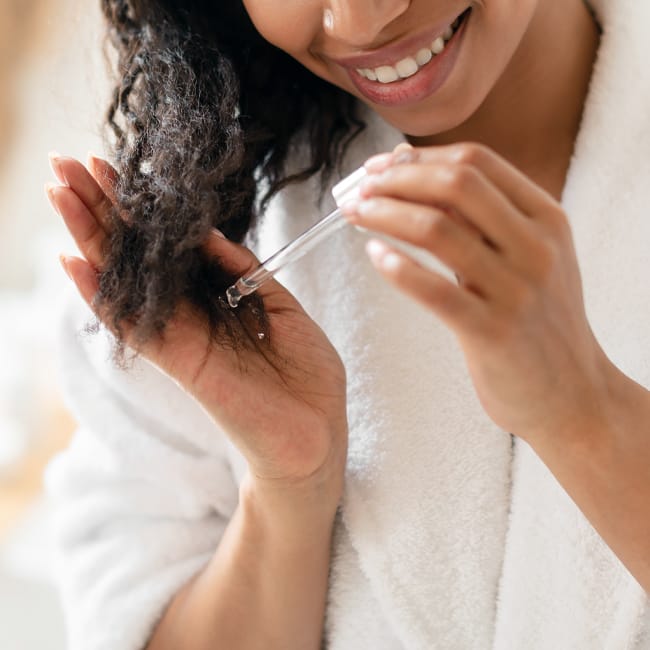SheFinds emphasizes that this review is not monetized, compensated, or sponsored in any way. This evaluation of the product is strictly based on the expertise of a beauty industry expert.
For those of us prone to naturally dry skin, the seasonal transition often brings about patchiness, redness, and overall irritation. To combat this, maintaining hydration is crucial, as is understanding which skincare and moisturizer products are beneficial and which ones might worsen dryness.
With that in mind, we consulted dermatologists and skincare experts to identify three “worst” common ingredients found in moisturizers, sunscreens, face washes, body washes, serums, and other products that should be avoided this fall if your skin tends to be dry. They also shared superior alternatives.
Read on for tips, suggestions and insight from Dr. Anna Chacon, MD, board-certified dermatologist and writer at My Psoriasis Team, Dr. Cheryl Rosen, Director of Dermatology at BowTied Life, clinical dermatologist Dr. Enrizza P. Factor, clinical dermatologist and writer at My Eczema Team, and Ghanima Abdullah, cosmetologist at The Right Hairstyles.


3 Moisturizer Ingredients To Avoid For Aging Skin This Fall—And Superior Alternatives
1. Alcohol
Often found in moisturizers, toners, facial peels, other skincare products and even makeup, alcohol is best to be avoided if you have naturally dry skin, Chacon explains. "Fall and winter is a great time to get cozy and binge-watch your favorite shows, but it can also be a nightmare for your skin," she acknowledges.
"Dry, tight skin is common in the fall and winter, and it's often worse if you live in a place with low humidity, and there is an ingredient you can avoid if you want to help your skin this fall— alcohol." Chacon adds that "alcohol has been shown to irritate sensitive skin and make it drier." It can also "cause flaky patches on your face," as it has a naturally drying effect as it is.

Instead, Try A Moisturizer With Hyaluronic Acid
Instead of alcohol-based products, Rosen recommends reaching for "a product that is hydrating" like with hyaluronic acid, and one that "contains natural oils"
She also suggests including hyaluronic acid serums in your routine that "help to lock in moisture and keep your skin hydrated," oil-based cleansers that "won't strip your skin of its natural oils and can actually help to balance oily skin," and lotions and moisturizers that contain ceramides, as "these help to repair the protective barrier of your skin, keeping moisture in and irritants out."

2. Fragrances
We're not talking about perfume here, as oftentimes, toners, cleansers, body washes, moisturizers and other products can feature an irritating fragrance that can lead to red, itchy and patchy skin (or exacerbate these conditions if your skin is that dry already)."Fragrance can cause irritation and allergic reactions in some people (including those with asthma)," Chacon notes, so she says to "make sure any skincare products or body washes you use don't contain fragrance as an ingredient."
Factor agrees, and urges to "choose a toner that contains hyaluronic acid to keep your skin hydrated," as opposed to one with a fragrance that can dry it out more. "Use toners that are gentle, and do not contain irritants like parabens, artificial colors or fragrances," she says.

Instead, Choose A Specifically 'Fragrance-Free' Moisturizer
When it comes to dry skin, Rosen reiterates that avoiding fragranced moisturizers is key to not exacerbate patchiness, itchiness and redness. Abdullah warns that a fragrance on a label is "not often not one ingredient, but a compendium of ingredients in low concentrations that the manufacturer doesn't want to list directly on the ingredients."
Because there is "very little government oversight with personal care products," Abdullah says that a "fragrance" can be anything. "Overproduction of oil can also be an allergic reaction, as can acne," she goes on. "Allergic reactions are the reason we now have so many fragrance-free products on the market," she continues.

3. Sodium Lauryl Sulfates (SLS)
Do you have a bubbly, foamy cleanser that often makes your skin feel even drier? Chacon stresses checking if it contains Sodium Lauryl Sulfates (SLS), what she explains is a "common ingredient in soaps, facial cleansers and even some moisturizers," known to "irritate sensitive skin and cause itchiness or redness."
Rosen adds that this "harsh detergent" is used in many lotions, but it "can strip away the protective lipid layer of the skin, leading to dryness and accelerated aging."

Instead, Try A Moisturizer With Ceramides
Sulfates might be in your go-to product, Chacon adds, and to avoid the negative effects of this drying ingredient on your skin, she suggests "switching to something gentler," like a moisturizer with ceramides. She points to the Avène Hydrance Rich Hydrating Cream, a "thick, creamy moisturizer" that is a "popular beauty pick" in French pharmacies, and can also be found at your local Ulta.
"Its soothing properties aid in the restoration and rebalancing of dry skin, and it prevents skin water evaporation by strengthening cell cohesion," Chacon points out. Chacon also notes that this product can effectively "remove dehydration lines" to help your skin look younger and more nourished, as its shea butter ingredient "helps to reduce signs of aging, dryness, and dehydration."

The Bottom Line
In general, if you struggle with dry skin, Chacon says to always "select a moisturizer with at least some of the following ingredients," including "hyaluronic acid (HA), ceramides, glycerin, urea, antioxidants, aquaporins, and plant oils and butters." Without proper daily moisturizing, your skin can be "left dry, sensitive, and dull," Chacon warns. This, she says, is because "as we get older, skin inherently becomes drier," due to less active oil-producing glands, and it "doesn’t retain moisture and healthy fats."
For dry skin, Chacon stresses that a cream moisturizer like the aforementioned one will be the "best choice" because its "thickness means it will feel relatively heavy on the skin, and will take longer to dry." In addition, she recommends always choosing a "fragrance-free moisturizer that is free of parabens and irritants" this fall. (The more you know!)


























